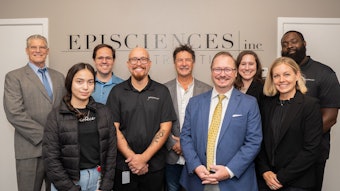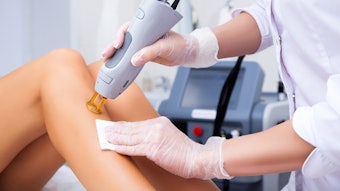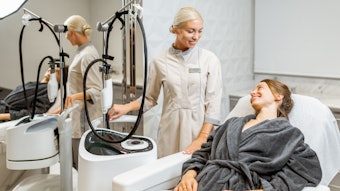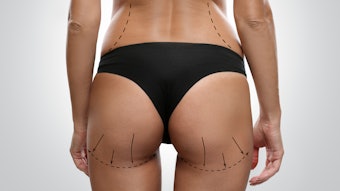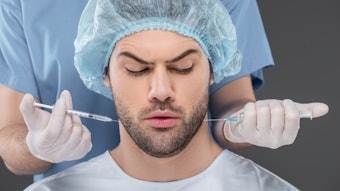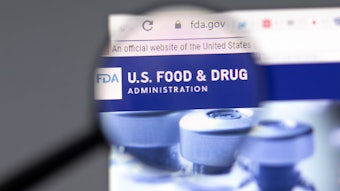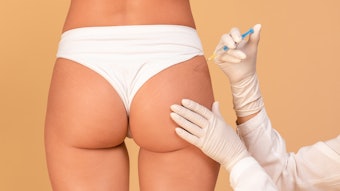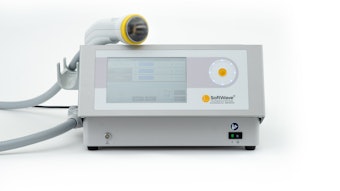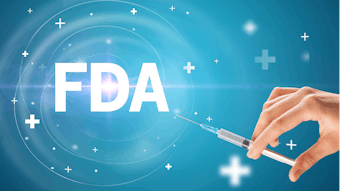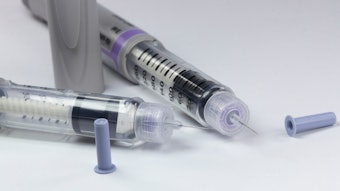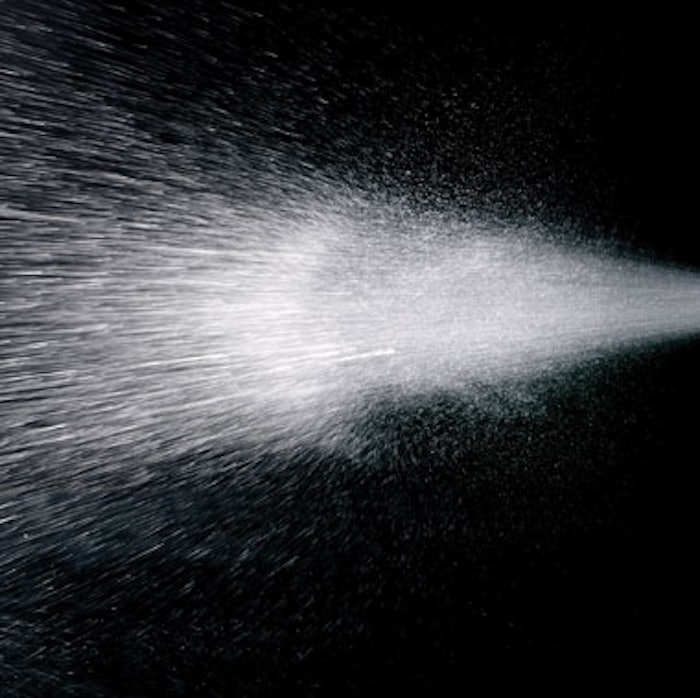
In the past several months, you may have noticed ads, social media posts, articles, videos and training events talking about an “incredible” new injection device that can place hyaluronic acid filler in the skin without using a needle. These devices are often marketed as “noninvasive” or “nonmedical,” using names such as “hyaluron pen” or “hyaluronic acid atomizer.”
Although they do not have needles, these products are medical devices and should be treated the same as traditional syringes. In the United States, administering medication, no matter the method used, is part of each state’s definition of the “practice of medicine.” Therefore, any person wanting to administer treatment with a needle-free injector must have the same type of professional license required to inject using a needle and syringe. In addition, the U.S. Food and Drug Administration (FDA) has not approved any needle-free injector for use with hyaluronic acid fillers, meaning practitioners should not be marketing these treatments. But should you offer them?
No Needle, No Problem?
Needle-free injection devices generally are used to deliver vaccines and medications either intramuscularly or subcutaneously, similar to a traditional needle and syringe. They work by creating a very narrow high-pressure jet of medication that is able to penetrate the skin. The jet is generated using gas or spring pressure to force the medicine through a small opening in a disposable vial. The purported benefits include lower risk of cross-contamination, reduced needle-stick injuries and less sharp medical waste. This makes these devices particularly well-suited for inoculation campaigns, clinics and home self-administration of insulin or other medications.
Several needle-free injection devices have received FDA approval for use with specific drugs. For example, in 2014 a needle-free injector manufactured by PharmaJet and Seqirus Pty. Ltd.—manufacturer of the influenza vaccine Afluria—received approval to administer the Afluria vaccine using the PharmaJet Stratis injector for patients 18 to 64 years old. The FDA made clear, however, that it still recommends sterile needles and syringes for other vaccines and for patients younger than 18 and older than 64.
These injectors are regulated through the FDA premarket notification process under the 510(k) provision. These premarket notifications are granted when a new device is substantially similar to an existing approved device, and they allow the manufacturer to begin marketing the product while it complies with the more lengthy registration and approval process. In order to be cleared through this process, at least one drug or injectable substance must already be approved for this method of injection.
The FDA has approved a number of hyaluronic acid-based fillers for injection using either the traditional needle and syringe method or cannula. Thus far, no hyaluronic acid fillers have been approved for use in needle-free injectors. So, any pen injector cleared under the premarket category may not legally be marketed for use with hyaluronic acid-based fillers.
Professional Considerations
Medical aesthetic professionals interested in bringing needle-free devices into their practices need to consider two questions: Can I legally offer these treatments and should I? Physicians generally are able to use otherwise-approved devices and drugs in ways that are not yet approved by the FDA. This is known as “off-label use,” and it is the source of a great deal of innovation and advancement in the medical field. However, physicians are not allowed to advertise and promote off-label uses. Additionally, using unapproved devices in an unapproved way can create standard-of-care and liability issues for the practitioner if the patient experiences an adverse outcome.
So, while it would not be advisable for a nurse or physician to purchase one of these unapproved, illegally marketed devices off eBay, for example, a physician could take an FDA-approved needle-free injector and repurpose it for injecting FDA-approved fillers, so long as they did not market or advertise this practice. The question then becomes—does it make sense to do this? Do such devices bring additional capabilities over the current syringe-and-needle techniques?
While many of the approved devices allow for the dosage per “firing” to be metered, it does not appear that the placement of the medication can be done as precisely as using a syringe and needle—there is no way to ensure that the filler is injected in the precise location or depth, or in the amount desired. According to studies conducted by jet injector manufacturers, the amount of the drug that is actually delivered and the precise location of delivery can vary from injection to injection. The depth and penetration also can be influenced by tissue density, the angle of the injector to the skin and the pressure applied against the skin prior to firing.
While these variables can be within acceptable limits for administering vaccines and medications, would they be acceptable for cosmetically treating someone’s lips or face? Newer devices may remedy some of these issues, but any licensed practitioner should carefully consider the pros and cons before integrating this off-label use into their practice.
Home Use Concerns
The majority of the hyaluronic pens currently listed online are packaged with a supply of hyaluronic acid and marketed for at-home personal use. Surprisingly, there are relatively few legal issues for those wanting to treat themselves. While non-FDA-approved hyaluronic pens can’t legally be sold, they can be possessed for personal or nonmedical use.
Furthermore, people are generally free to do things to themselves that would normally require a professional license if performed by another. For example, you can cut your own hair without a barber’s license, you can write your own contracts without a law license, and you can treat your fever without being a doctor. Similarly, someone can possess a jet injector for their personal use, as well as possess syringes and scalpels if they so choose. It is worth noting, however, that in some states, possessing prescription drugs and substances—such as injectable hyaluronic acid filler—without a prescription is prohibited. And offering to perform these treatments on others is considered practicing medicine without a license.
From a practical standpoint, people should think carefully before choosing to perform medical procedures on themselves. The jet injectors being sold are not designed for this use—they appear to be rebranded and repurposed injectors that are not approved in the U.S. The hyaluronic acid fillers sold with them and available online are not approved for injection into humans, either, and often are of unknown sterility, safety or quality.
The public should be extremely wary of using these devices, and under no circumstances should anyone perform this treatment—or any other cosmetic injectable—unless they hold an appropriate medical license. Licensed healthcare professionals should educate their patients about the risks of these at-home, unapproved products and should always carefully consider the benefits and risks of adding a new or novel treatment to their own practices.
Alex R. Thiersch, JD, is a healthcare attorney who represents medspas and aesthetic medical professionals. He is the founder and CEO of the American Medical Spa Association (AmSpa) and partner at ByrdAdatto Law Firm. Contact him at [email protected].
Image copyright iStock.com/Pavelis
